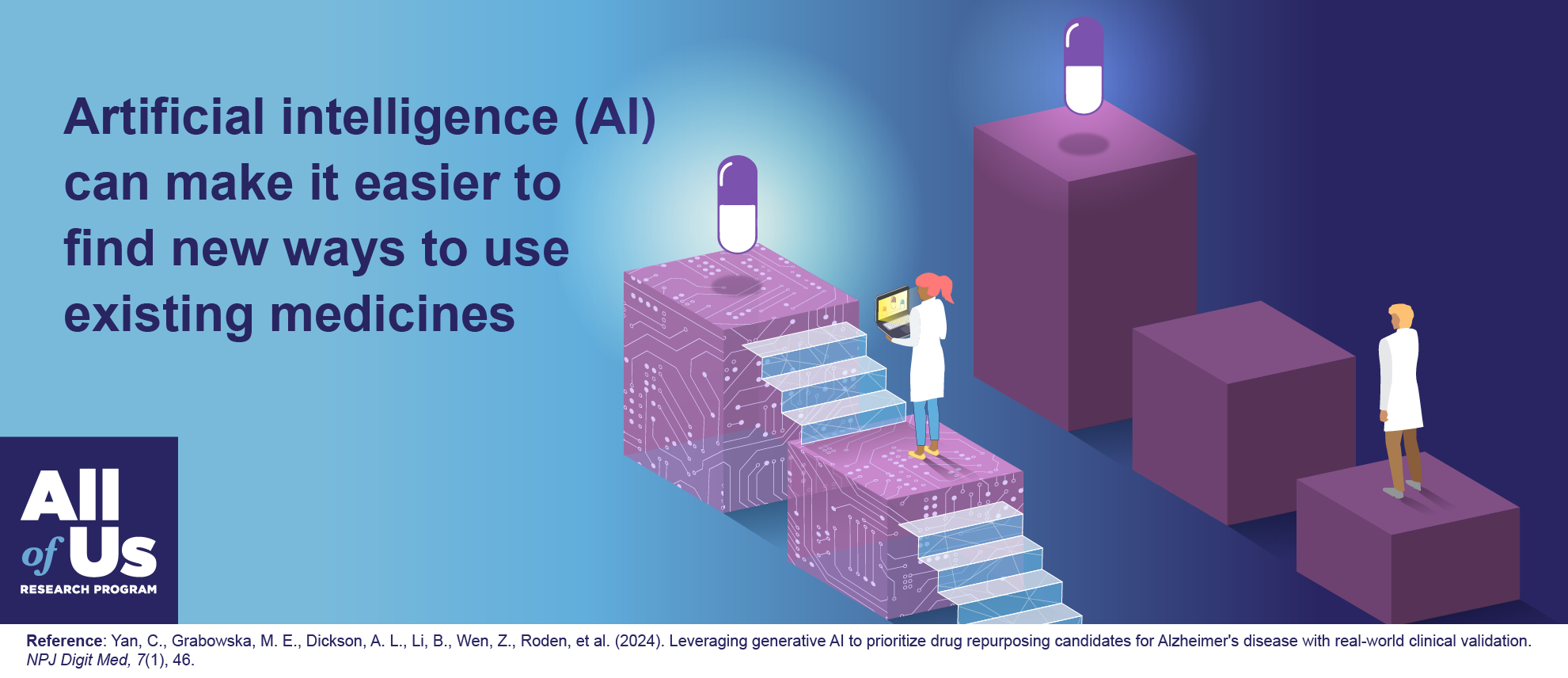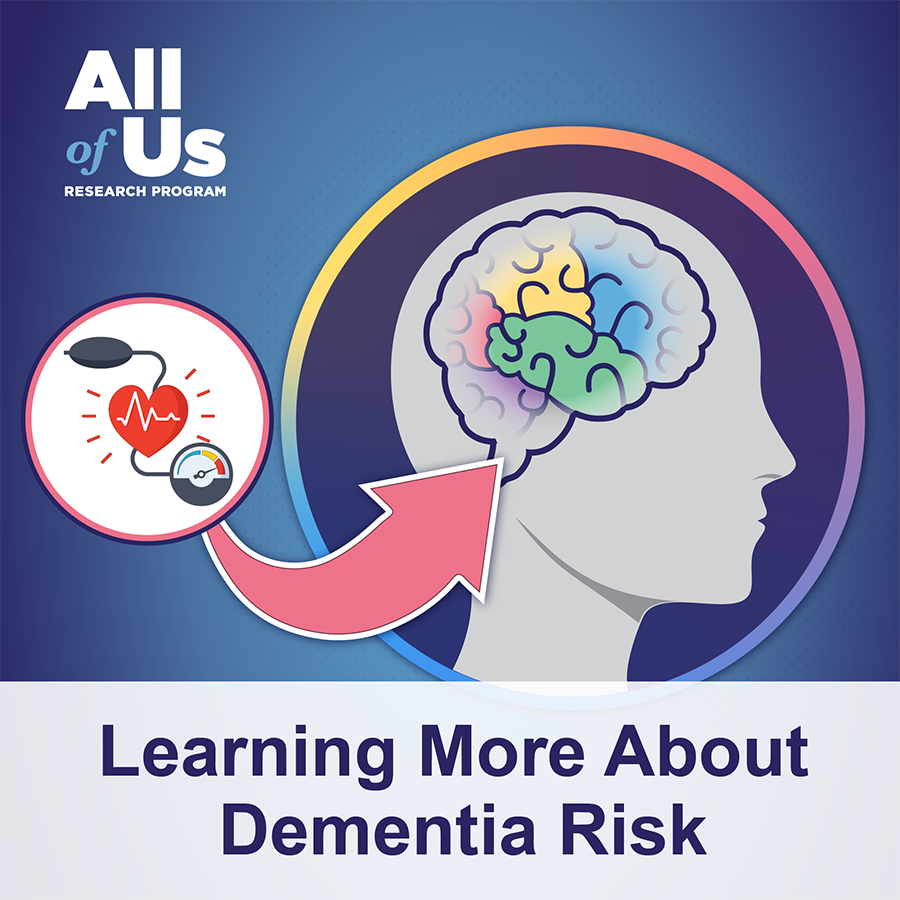
Key Facts
- Using ChatGPT and large health datasets, researchers showed how to find promising medicines to test in people faster.
- ChatGPT is a type of artificial intelligence (AI). AI can do some tasks much faster than people can.
- The range of information about participants’ health conditions and medicines in All of Us and other datasets makes them useful for checking that AI results make sense.
In Short
Finding medicines takes a lot of time, money, and hard work. Researchers may be able to speed up the process.
A new study shows that combining the speed of artificial intelligence (AI) with the depth of All of Us data can quickly suggest new ways to use existing medicines. In this study, researchers used ChatGPT (model GPT-4) to search huge amounts of scientific information on the internet for medicines that might lower the risk for Alzheimer’s disease, a condition that affects memory and thinking skills. Then they looked at data in All of Us and another large dataset to see whether people who had taken those medicines developed Alzheimer’s disease later in life.
In a short amount of time, researchers found three medicines that were tied to a lower risk of Alzheimer’s disease. They still need to do clinical trials to see how the medicines work in people. But this project suggests that using AI tools, such as ChatGPT, and large health datasets can speed up drug discovery.
The researchers published their results in the journal npj Digital Medicine.
AI for Ideas
A medicine meant for one condition can sometimes be used to treat another condition. This is called drug repurposing. Reusing existing medicines is faster and costs less than developing brand new ones. But the process is not easy. Experts need to read through a lot of information to find medicines that are likely to work for other conditions.
AI programs like ChatGPT can review and summarize information very quickly. Researchers used ChatGPT to try to find medicines that could be repurposed for Alzheimer’s disease. ChatGPT found 10 possibilities in much less time than experts could have, working on their own.
Participant Data for Checking Results
Information from AI always needs to be checked. To do this, the researchers studied electronic health record data from All of Us and Vanderbilt University Medical Center to see how those 10 medicines worked in real people.
The researchers compared health information from participants who had taken one of the medicines with those who had not taken that medicine. They counted how many in each group developed Alzheimer’s disease by age 75.
Participant data indicated that three of the 10 medicines suggested by ChatGPT are linked to a lower risk of Alzheimer’s disease in the participants. These were:
● A diabetes medicine
● A high cholesterol medicine
● A high blood pressure medicine
Now What?
This study did not prove that these medicines prevent Alzheimer’s disease. Only clinical trials can confirm this. This study shows how to find promising medicines to test in clinical trials faster than before. This process can be used to match existing medicines to a variety of health conditions.
As AI advances, it may be able to suggest even better matches. And data from All of Us could help move those medicines closer to treatment.
Interested in All of Us?
- Read more research highlights.
- Learn about participation in the program.
Conduct research with All of Us
- Learn about opportunities for researchers.
- Find funding to support research using All of Us data.
- See more research projects made possible by All of Us data and tools.


